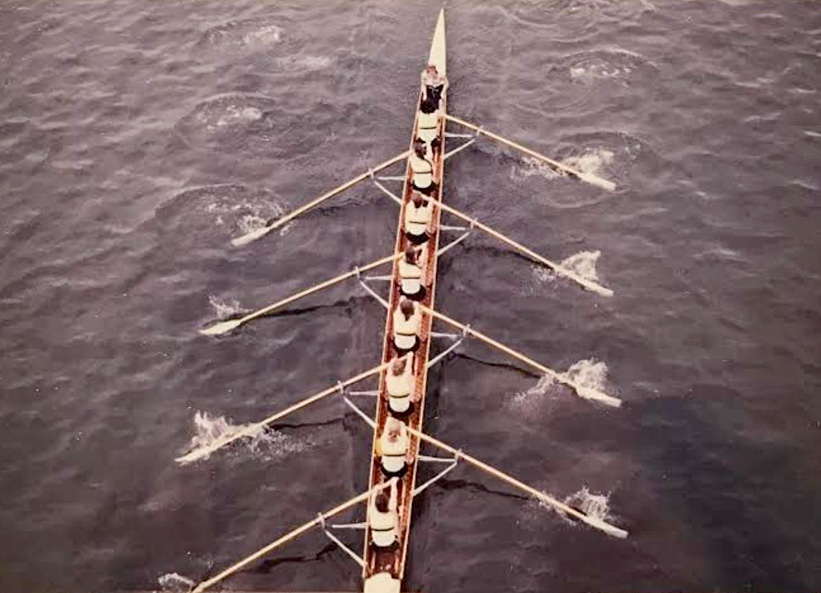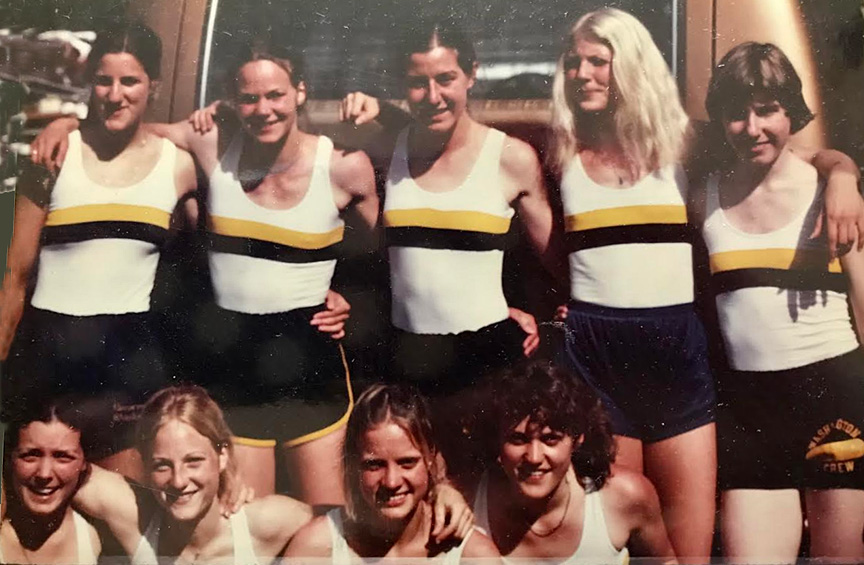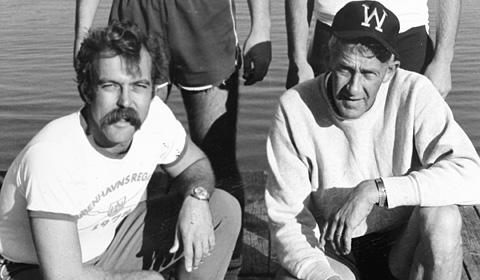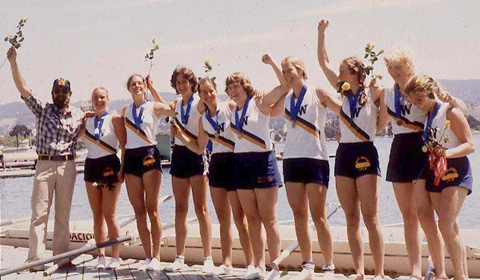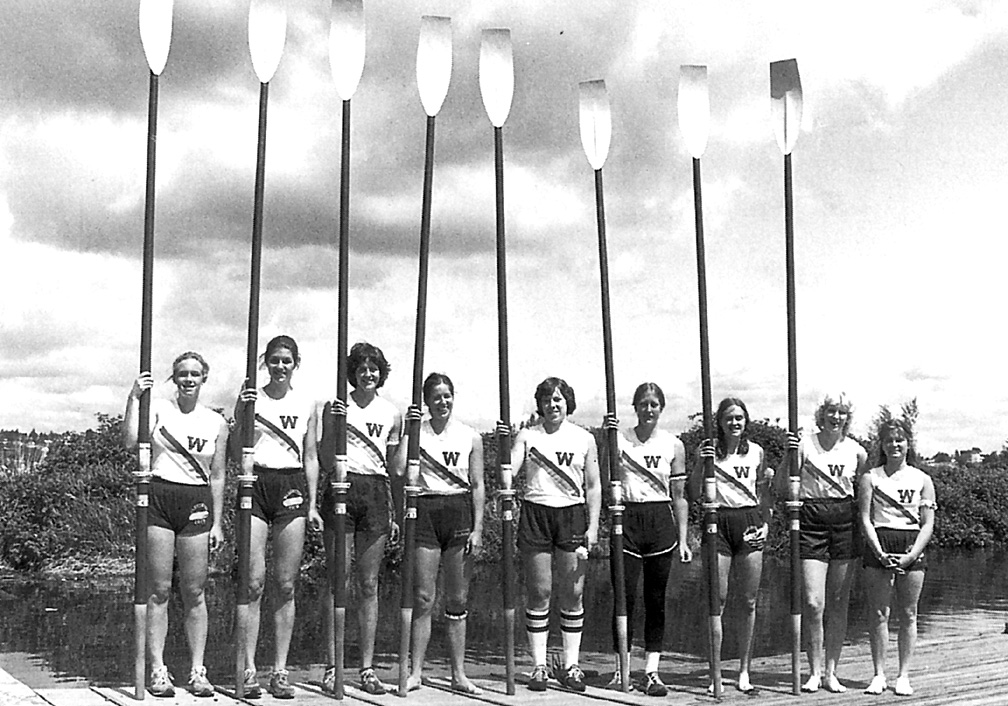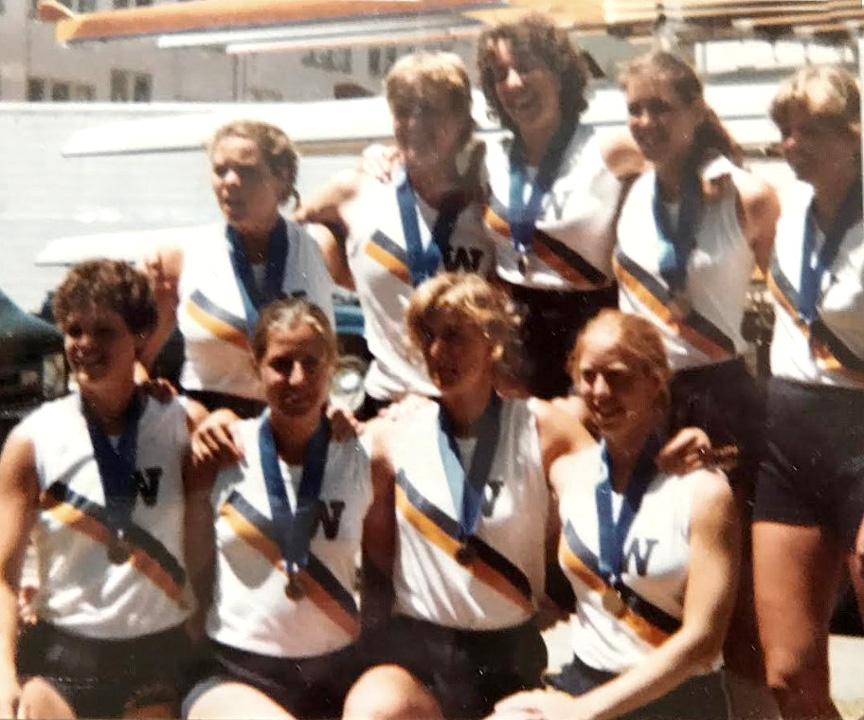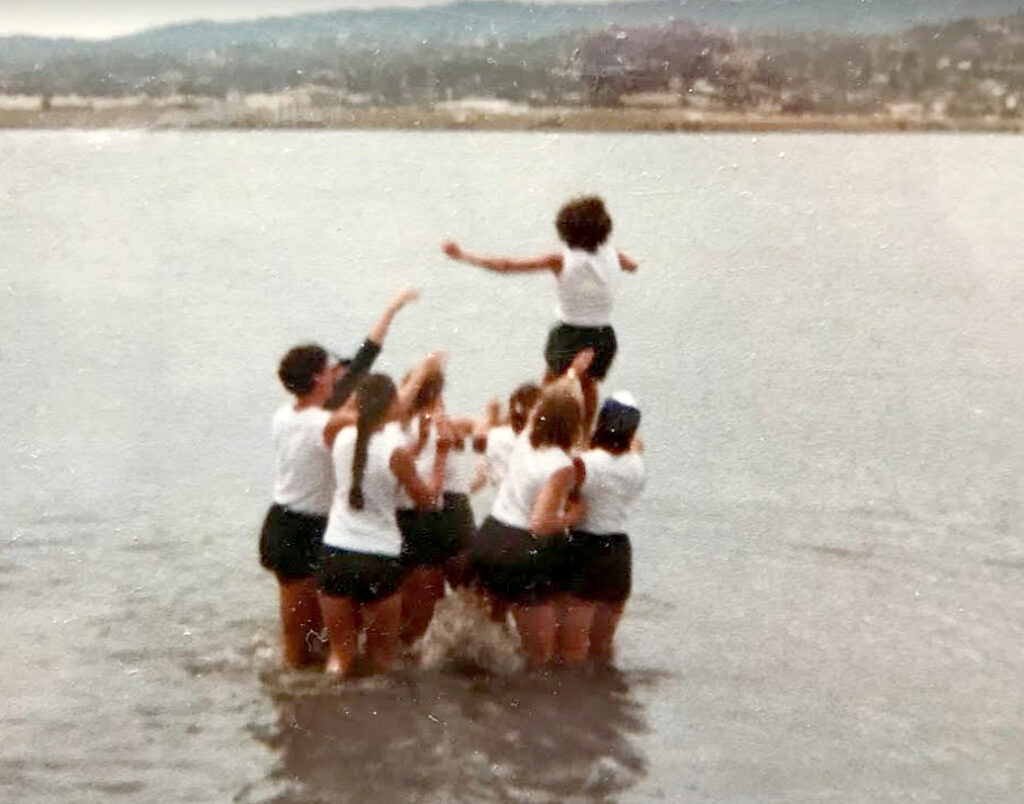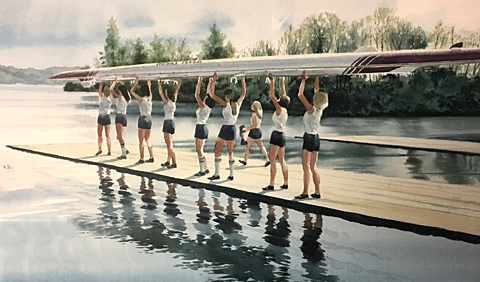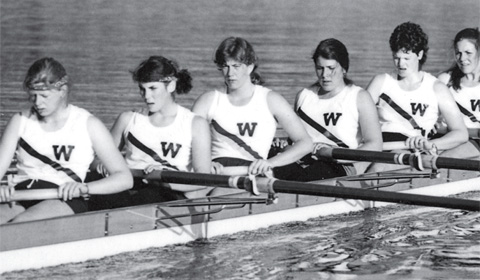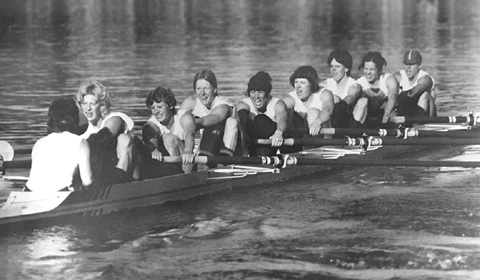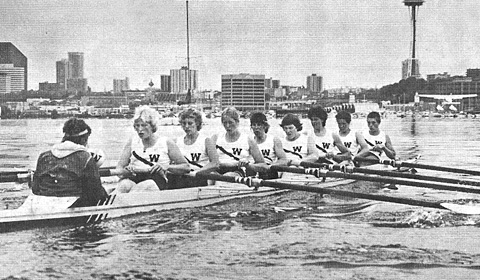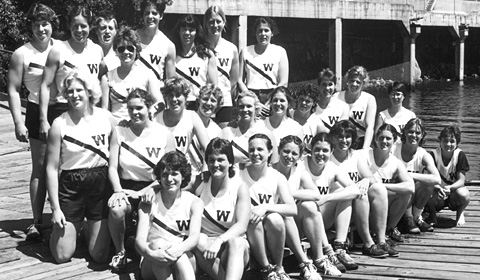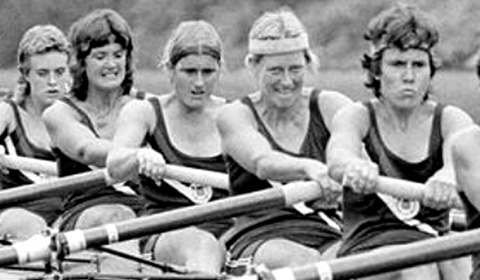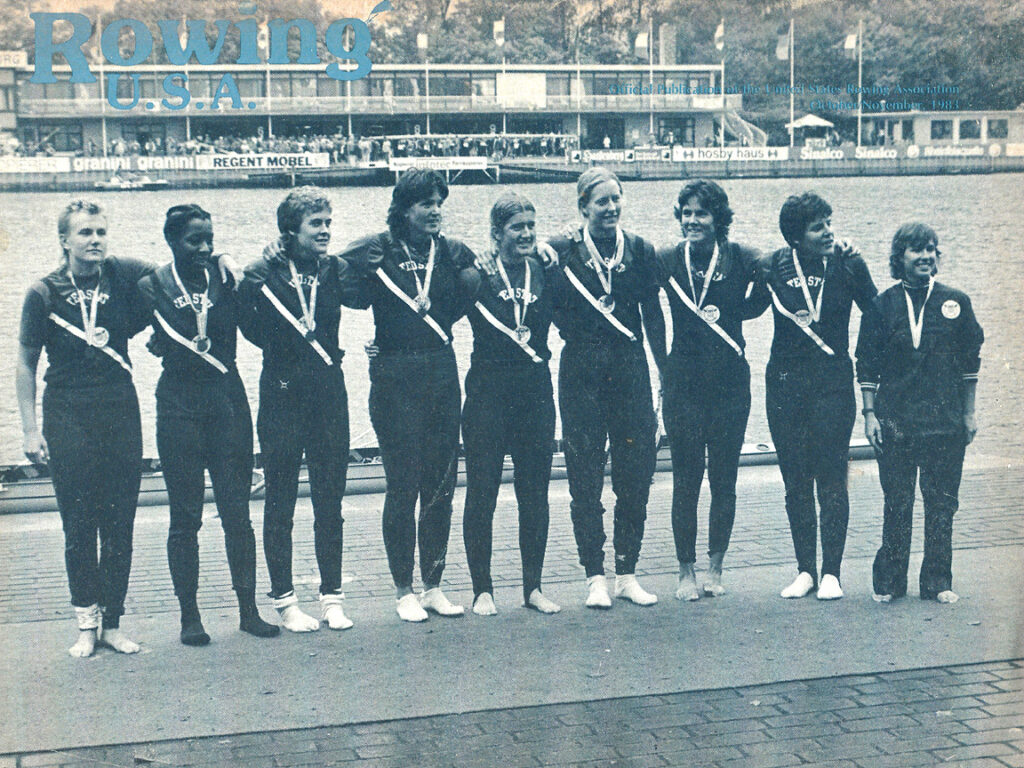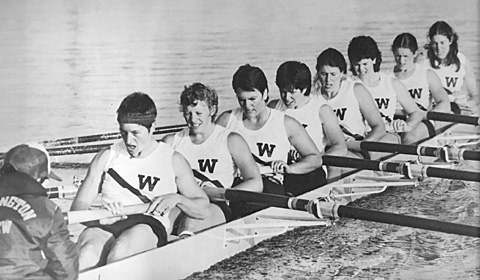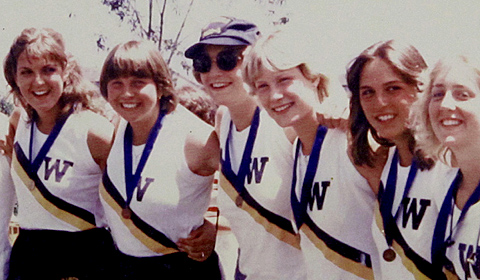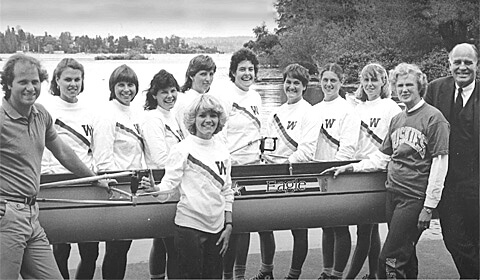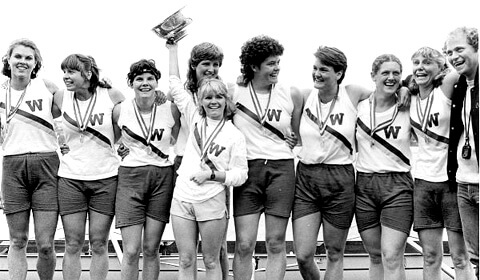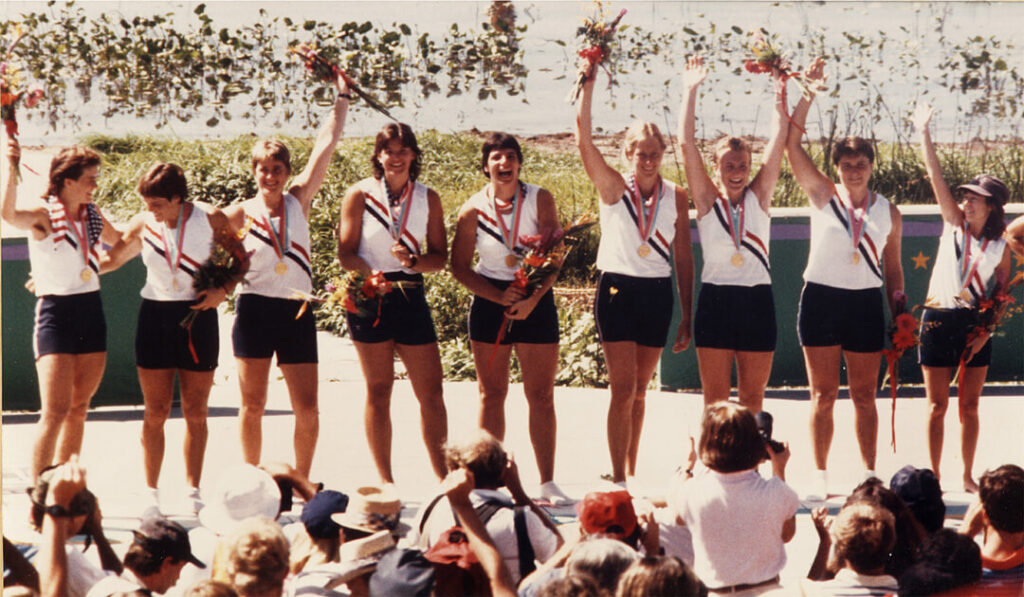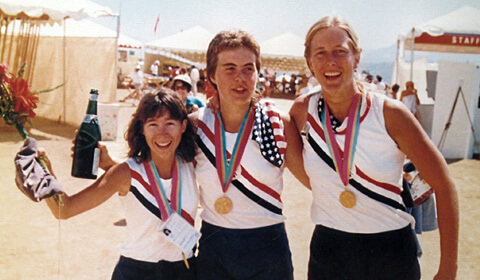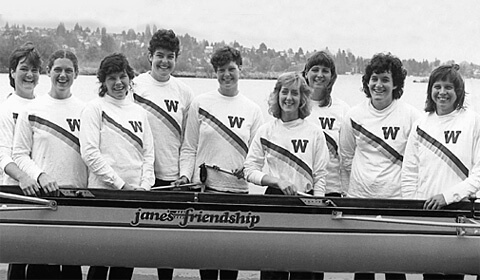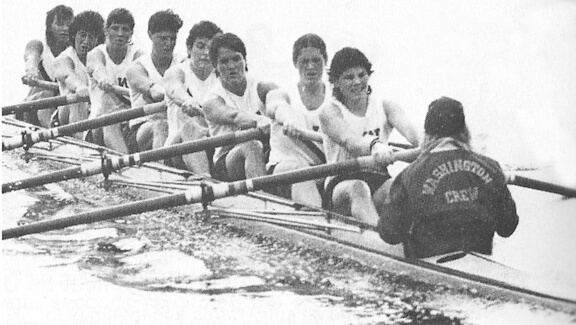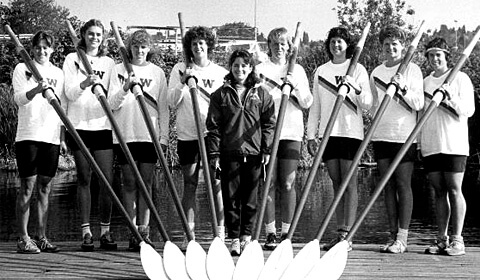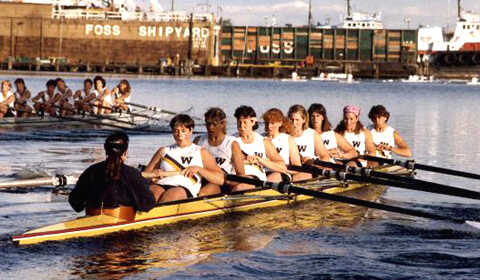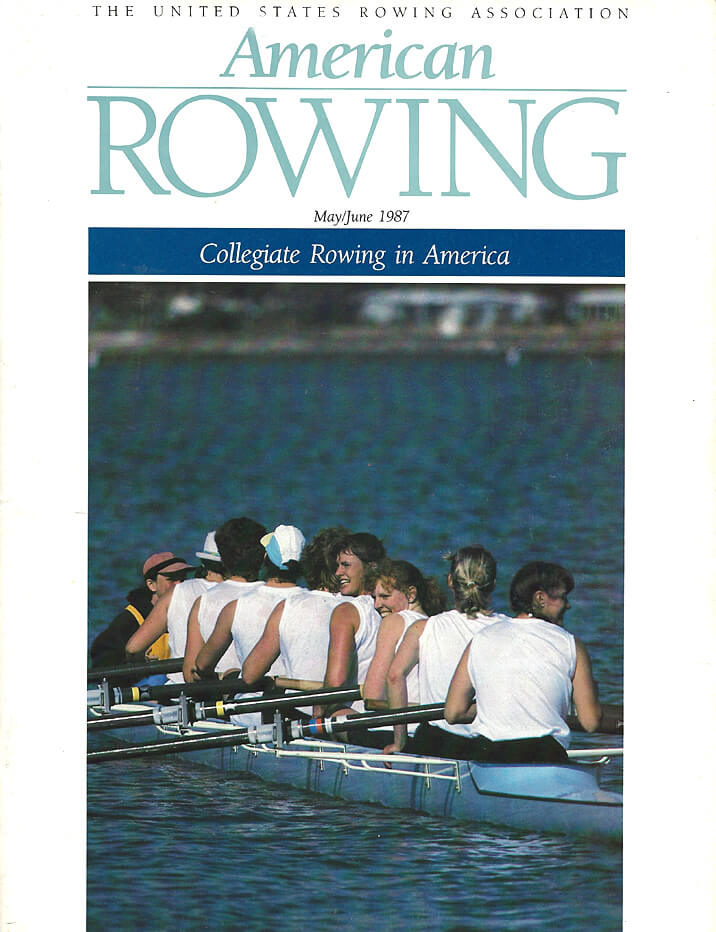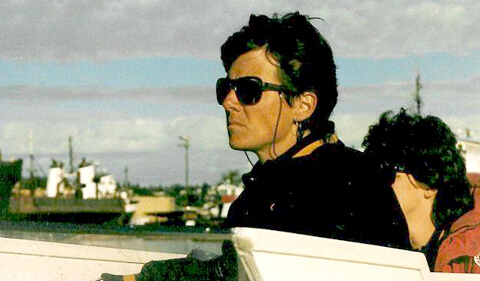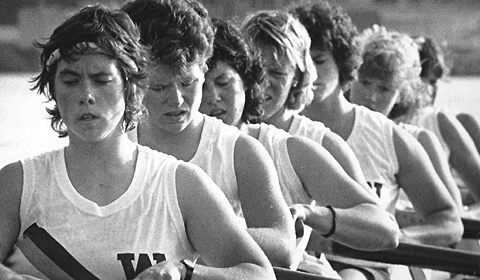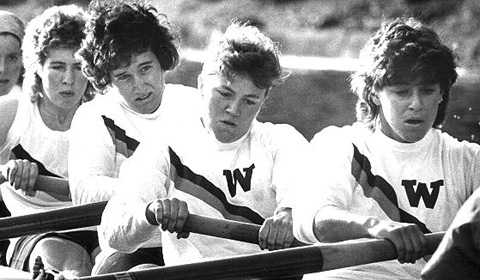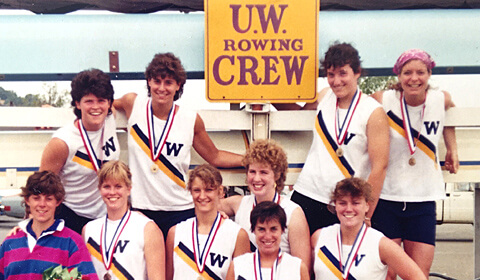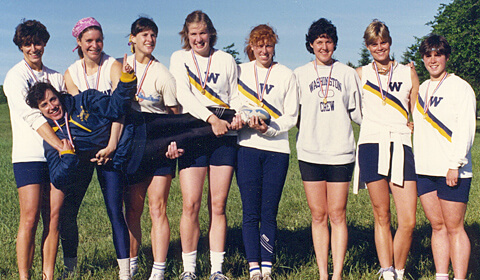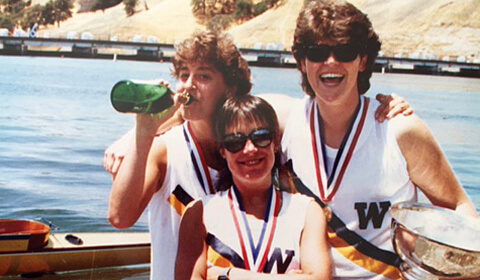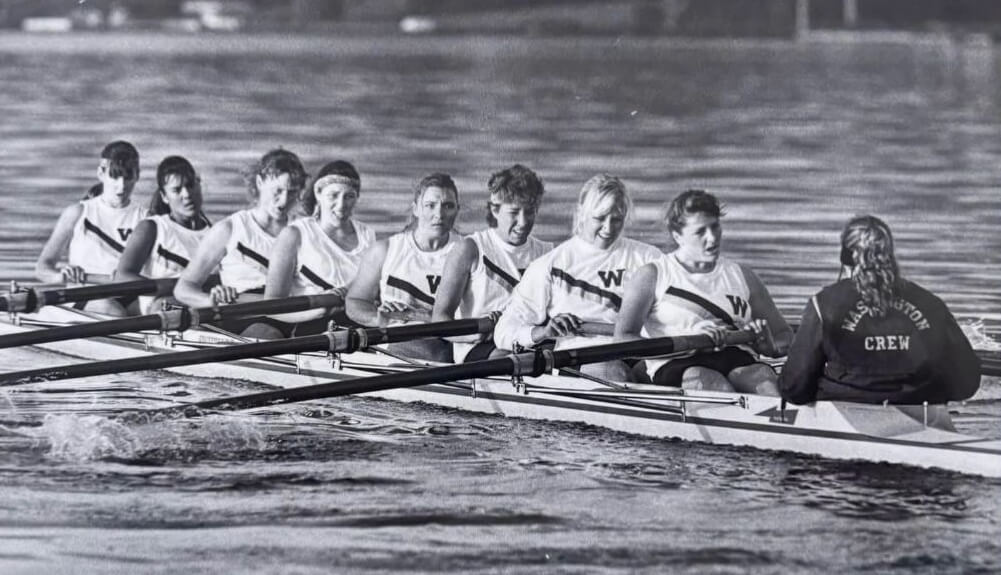The mid to late 80’s saw many of the east coast universities re-building their women’s programs. Wisconsin, in 1986, had knocked Washington off of the top spot on the podium for the first time since 1981. The team was forced to re-group, and the result was an expectation of performance that was visible each day. “When it is that clear, when it is something people share, everyone is on board…” said Doyle, “those women were not going to let one stroke go by that they did not pull their hardest and row their best. It was a standard of excellence I had never seen before.”
The varsity eight would proceed through the spring season undefeated, but the competition was fierce. At the Redwood Shores match-racing regatta in April, the team would face down Radcliffe (Harvard), Yale and Brown in three separate races, and in each case were tested the full 2k. Taylor remembered the trust and confidence she had in her team: “We were behind to Brown by a length at the 1500 meter mark. None of us cared where we were because we knew we would win. My biggest take away from that year was the confidence our team had – we were so amped up in the last 500 we could beat anyone.”
By the time Nationals rolled around the team had perfected both their race strategy and their physical conditioning, and knew they were on the cusp of meeting the expectation they had set at the beginning of the year. But the stormy weather at Hammond Lake, in the upper reaches of Pennsylvania, had a different agenda that June weekend. On a windy Sunday, when the Varsity finals were set to go, there had been enough swampings and near sinkings in the earlier races that regatta officials canceled the marquee V8 event. It was agreed that the race would be postponed to Monday, but due to flight schedules and concerns for more bad weather, it was going to need to be early. And early it was.
“We got up at 3:30 a.m. It was dark when we were stretching,” said Taylor. “and it was dark when we went to launch.” Doyle remembers the same, but with a twist: “It was very peaceful. Contemplative and serene. And then suddenly Radcliffe showed up and started blaring music from their van. I just remember thinking ‘Bring it on.’”
Bring it on is what Washington delivered. Out of the blocks in a flash, the Huskies held the lead through the first 1500. “We were in Jane’s Friendship (the 1984 US Olympic Empacher named for the late Jane McDougal ‘82 and donated by longtime UW Rowing Steward Hunter Simpson). We were ahead and I remember feeling in control, and in the last 500 we poured it on. Yaz was in that race… I remember her voice so distinctly,” said Taylor.
Yaz remembers that day too. As the senior coxswain for the Wisconsin Varsity 8, she was at the starting line that morning as well. “We knew Washington was the team to beat,” she said. “They were big, fit, and looked confident.” Even so, as the only team to beat Washington at the National Championships since 1981, Wisconsin figured they had a shot. “We held with them through the first 1500 meters… but coming into the last 500 the UW just started walking. Nothing appeared to distract them. As a coach now I can tell you that team was a product of high performance coaching. They had been trained all season for that moment and nothing was going to stop them.”
“We finished and there were no fans,” Doyle said. “No one was there. Our parents had all left on Sunday. We got off the water and hugged each other. Jan had a smile from ear to ear.”
“I give full credit to that crew,“ said Harville. “It felt like racing in the middle of the night. It was pitch dark when we got to the course… it was not right. But you train for the unexpected… to be ready for anything. And we got it. And they just went out there and took care of business in the biggest race of the year. We won the team championship that year as well, so all around it was an exceptional group of women.”
Thirty years later those same women still highly value their experience at Washington. “It was one of the most profound experiences of my life,” says Taylor. “I had never been on a team before that was that dependent on your teammates. I learned so much about discipline, dedication and hard work.”
For Doyle, when asked what Washington Rowing has meant to her, she said, “Excellence, and what it means to truly want it. I continue to attempt to live by that idea on a daily basis. It instilled that as part of my being to this day.”
Excellence, dedication, confidence… all words that describe the women of 1988. Throw in the ability to adjust to a dawn start for the biggest race of the year… and you have the makings of a champion.
